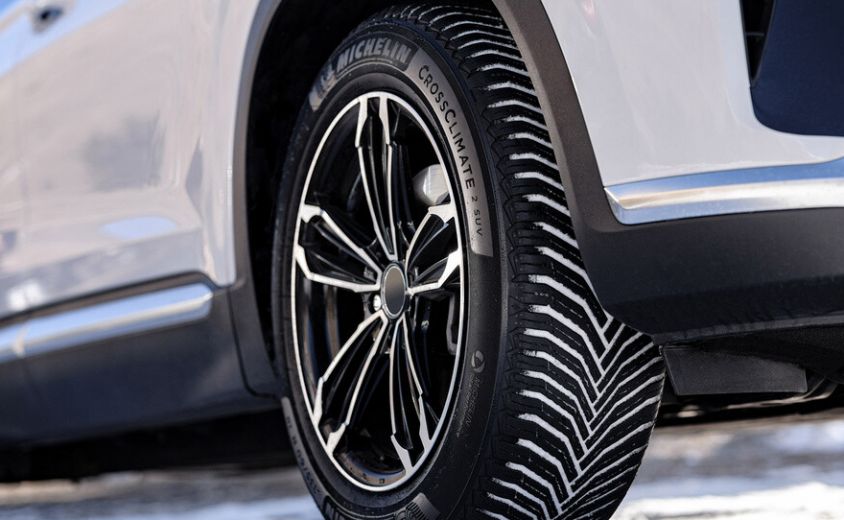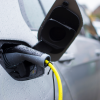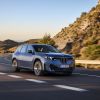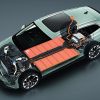For those drivers looking at travelling over the festive period, these tyres could boost their battery range during this busy time for the UK road network.
The research from Michelin found that with more than half of drivers planning to drive over the festive period (52%).
EV tyres could result in drivers gaining extra 8.3 million miles in battery range – equivalent to 25.7 miles per vehicle on average.
Further analysis of the national survey results showed that most drivers are unaware that EV-specific tyres are available.
Currently, 72% of drivers admitted they were unaware of how their type of tyres can be beneficial for their vehicle.
The survey also found that only 28% of respondents were aware of EV-specific tyres – highlighting that the public are still partially unaware of how an EV works and the benefits of switching to electric.
As the cost-of-living crisis continues to hit the UK, the importance of these tyres in saving money in the long term are becoming apparent to EV owners.
John Howe, Managing Director for UK and Ireland at Michelin, said: “With the festive period in sight, everyone is thinking about how best to get home to visit their friends and relatives. Drivers are making this decision in the context of a cost-of-living crisis and continued train strikes, so are looking for any relief available to them.
"EV-specific tyres offer a solution. Not only can they enhance battery range, allowing drivers to travel further per charge, but these tyres last longer on an electric car than a standard tyre.”
When looking at who in the UK knows about the availability of EV-specific tyres, Londoners proved to be the most knowledgeable, with 54% of those polled from the city knowing of the advancements in tyre technology.
However, in comparison, the other UK regions ranged from 17% in Yorkshire and the Humber, to 32% in the North East, indicating a significant disparity in EV knowledge between the UK’s most populated city and the rest of the country.
The Michelin research also found that the increase to battery range is viewed by respondents as the main benefit of EV-specific tyres, with 35% of drivers viewing it as an important addition.
With the winter season in full force, electric cars are known to lose battery range in colder temperatures, but tyres with range-boosting credentials could help to offset this loss in mileage.
Howe continued: “A great deal of innovation and research goes into producing a tyre that can increase the range of an electric car. It requires the incorporation of several new tyre technologies to lower rolling resistance, increase efficiency and optimise the handling characteristics of electric cars.
“However, to truly get the most out of an EV, drivers should ensure they are making use of every opportunity available to them. To this end, we have provided our expert-recommended Top Tips for increasing EV battery range.”
What is the difference between EV and normal tyres?
From a road legal point of view, there is no requirement to use EV-specific tyres – but there are several benefits to using them instead of more traditional tyres.
In fact, the legality of all tyres is linked to safety and impacts all vehicle types.
However, EV-specific tyres come with their own specific traits that can make the car last longer and save money.
These new tyres are heavier, firmer, and quieter than traditional tyres.
Torque
When compared to their petrol and diesel equivalents, EVs produce a higher level of torque from a standing start. This puts a large amount of pressure on the tyre.
Therefore, thicker sidewalls and different compounds are used in the tyre to make them last longer and deal with the increase in pressure over a longer period of time.
Aerodynamics and resistance
EV-specific tyres have been designed with strong focus on aerodynamics. With a heavier weight to drive forward, it could lead to less smooth ride. This also goes for rolling resistance.
This is why these tyres are designed deal with higher levels of pressure and resistance without the performance of the vehicle suffering.
Noise
One of the features of electric vehicles is that they are quieter than combustion engine cars.
Leading manufacturers such as Michelin, Continental and Hankook have worked to ensure that EV-specific tyres also have reduced volume when you are driving.
Robust design
As EVs are traditionally heavier than petrol and diesel cars, the new tyres are designed to cope with larger loads and higher levels of wear over time.
Are you an EV driver? Were you aware that there were specific tyres for your vehicle? And will you be switching from your traditional tyres? Leave your comments below.

RAC sale – up to 33% off*
• Roadside cover from £5.29 a month†
• We get to most breakdowns in 60 mins or less
• Our patrols fix 4/5 breakdowns on the spot










